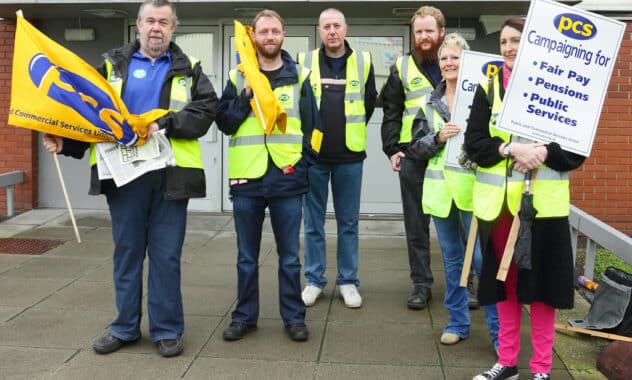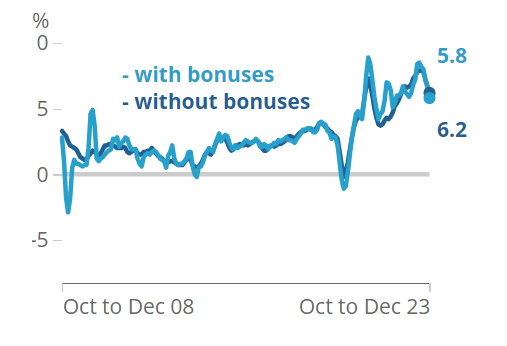44 experts; 23 proposals – how IER experts have responded to Coronavirus so far
Over the last fortnight, the IER’s network of lawyers and academics has responded to the Coronavirus crisis and the government’s reaction.

Between the 44 experts that made or supported proposals for amendments to the government’s Covid-19 response, or for new ways of working after the crisis to prevent an economic depression, 23 policies have been set forth.
Below, we list and summarise those proposals with a link to the original article from which they came.
Or, click here to browse all original articles related to Coronavirus and work
Let workers access the Job Retention Scheme, not just employers
Currently, an employer must declare their workers furloughed in order to receive assistance from the Job Retention Scheme, which pays 80% of PAYE workers’ wages. For those on zero-hours contracts or employed through an agency, this rule can leave them with no support at all, because it is simpler for the employer to simply stop providing work than to furlough. Our experts recommend that insecure workers are permitted to apply to the Job Retention Scheme after three weeks of worklessness.
Include commission and other fluctuating payments to calculate 80% of a worker’s wage
The Job Retention Scheme provides 80% of workers’ wages, but commission and other ‘bonuses’ are expressly excluded. For workers who largely work to commission this can cause significant issues.
Allow off-payroll (IR35) workers access to the self-employed scheme
Off-payroll (IR35) workers risk being eligible for a smaller level of pay than both those on the Job Retention Scheme and the self-employed scheme as a result of their complicated legal status. Our experts recommend this complexity is resolved by simply allowing all IR35 workers access to the self-employed scheme.
Allow ‘furloughed’ workers to perform a minimum of essential work
A worker cannot be defined as furloughed if they are conducting any work, which means those who have had their hours significantly reduced do not qualify for any support. This put organisations that must continue some aspects of their operations – such as responding to urgent enquiries – at a disadvantage. Our experts recommend an exception in the Job Retention Scheme for ‘de minimis’ essential work, to allow workers to continue taking care of essential duties on reduced hours without losing support from the Scheme.
Properly define self-employment
Professor Mark Harvey details how the epidemic of bogus self-employment in the UK has led to a double-crisis when it comes to Coronavirus. Decades of false self-employment has drained the public purse of the taxes normally paid by employers, and now the government is forced to bail out those misclassified as self-employed through its self-employment Coronavirus Scheme, thus creating a bottomless pit of public expenditure to the benefit only of unscrupulous employers.
In our Manifesto for Labour Law, our experts recommended that employment status is simplified in the UK to a binary split between those who are self-employed and those who are employed by another party, scrapping the definition of existing distinction between a ‘worker’ and ‘employee’. Further, the presumption should be flipped, they propose, so that the onus is on the employing agency to prove that the worker they have contracted is self-employed.
Include ‘limb (b)’ and agency workers in protection against dismissal for leaving work due to imminent danger
Sections 44 and 100 of the Employment Rights Act 1996 provide protection against dismissal for employees who leave their place of work due to a reasonable belief that they face imminent danger. However, so-called ‘limb (b)’ workers in insecure roles and those who were hired through an agency are excluded from this protection. Our experts recommend that this omission is rectified to provide some degree of protection to those who leave work due to the threat of Coronavirus. At the same time, clear guidance should be issued to the workforce as to the circumstances in which they are permitted to refrain from attending work, or otherwise performing the full range of duties.
Include ‘workers’, not just ‘employees’, under the Job Retention Scheme
By only including employees under the Job Retention Scheme, millions of agency and zero-hour contracts workers face being excluded from financial support. In their proposals for an Emergency Bill, Our experts recommend that all people who work are supported through the Job Retention Scheme.
The Job Retention Scheme should apply to those placed on unpaid leave and short-time working
A collective agreement between BAPLA and British Airways put pilots on two weeks’ unpaid leave in response to the Coronavirus, while other agreements have led to reduced hours or pay cuts. With workers engaged in short-time working and unpaid leave excluded from the Job Retention Scheme, these agreements will be undercut by the law.
Self-isolating workers should be included in the Job Retention Scheme
Currently, the Job Retention Scheme only applies to furloughed workers – i.e. those which would have otherwise been made redundant – but this leaves workers forced to self-isolate unprotected from financial duress. Our experts recommend that those sent home due to sickness or the potential to spread the virus – who currently are only eligible for the meagre sums provided by Statutory Sick Pay – should receive support from the Scheme.
People with caring responsibilities should receive support
Those who cannot work due to their caring responsibilities to their family as a result of the Coronavirus and the government’s response (for instance, caring for children who would otherwise be in nursery or school) must be protected from dismissal and have their wages reimbursed through the Job Retention Scheme.
Relief from redundancy payments for employers who reinstate workers
Employers who initially made their workers redundant in response to the Coronavirus, but who have since reinstated their staff in order that they can benefit from the Job Retention Scheme, are currently liable to make redundancy payments under the existing law. This presents a disincentive for employers to furlough workers they have already made redundant and it is also unfair to punish employers from doing the right thing.
Encourage collective solutions to the crisis
A collective or sectoral agreement between trade unions and employers could provide the best means to rapidly change terms and conditions en masse, and thus efficiently protect jobs, workers and the economy during the crisis. This system has proven successful in other European countries since the Coronavirus hit.
Exempt the Coronavirus response from calculations of ‘continuous service’
Many statutory rights apply only when a certain qualifying period of continuous employment has been reached. There is a danger that time out from working due to the Coronavirus crisis will set the clock back to zero under the current rules, with knock-on effects on workers’ rights when they return to work. Breaks in service due to the impact of Coronavirus and the government’s response to the Coronavirus should be excluded when calculating continuity of employment to ensure this does not occur.
Penalties for employers who do not do what they can to protect jobs
Employers that opt to make redundant workers that could otherwise have been furloughed – without reasonable justification – should be subject to penalties, potentially included an automatic finding of unfair dismissal.
Those planning large-scale redundancies should have their existing requirement to notify the Secretary of State of such action extended. Our experts recommend that the threshold for triggering this provision should be lowered; redundancies of this type should not be legally effective with Ministerial approval; and serious penalties should be imposed on those who fail to follow the law.
Publicise workers’ rights
Our experts warn that the government’s actions will not meet their objectives if the rights of workers during the crisis are not properly publicised. Specific effort should be put in to ensure workers’ rights are clear and widely understood.
Increase the rates at which Statutory Sick Pay and Universal Credit are paid
Millions of people are now relying on Statutory Sick Pay and Universal Credit. The rates at which these are paid should be increased to a level on which people can realistically live.
Improve the right to paid holiday
Non-furloughed workers on reduced hours may choose to use annual leave to supplement their pay. The government should improve the right to paid holiday to ensure this means of support can be used.
A new ACAS code on trade union involvement during redundancy
Where employers and trade unions work together, nations can limit mass unemployment during a financial crisis. There is much evidence of this effect stemming from the 2008 recession. Our experts recommend that a new ACAS Code on redundancy procedure could require employers to engage with trade unions.
Let workers vote for their boss
Giving workers voice in the workplace, including through seats on the company board and the ability to vote for company Directors (a power currently provided to stakeholders) has been shown to improve innovation and productivity. Our experts recommend that a serious economic depression as a result of the Coronavirus crisis could be avoided by giving workers these powers.
Give workers a say in how their pension is invested
Workers’ pensions are invested in the financial markets and the financial markets’ major plays currently have the power to support Directors who fire workers en masse. Providing the opportunity for workers to choose more ethical investments can limit unemployment during the coming Corona-recession.
Rights for all, from day one
To protect the economy in a post-Corona UK, the government should ensure that everybody who works has the right not to be unfairly dismissed, including those who have only just started in their job.
Say how full employment will be reached
To encourage confidence in the UK economy after the crisis, and therefore limit the flight of investors, the government should publicly announce how it plans to reach full employment.
Pause rent and debt repayments
While a mortgage holiday has been introduced for homeowners, rights for tenants and those in debt have been lacking. There is no pause on rent payments, although tenants have been provided with one extra month of protection against eviction if they fail to pay their rent. No support has been announced for those in debt. Given that most workers will experience a tightening of their budgets, rent and debt repayment holidays can help to keep people afloat during the crisis.







